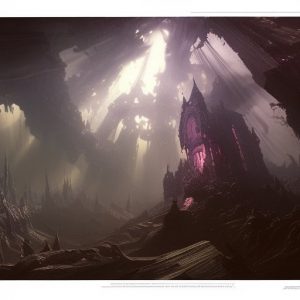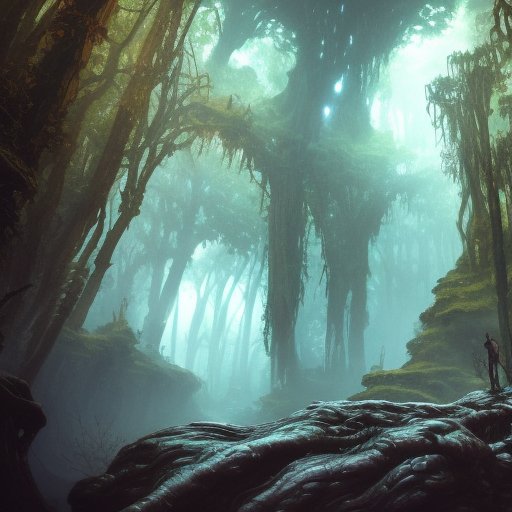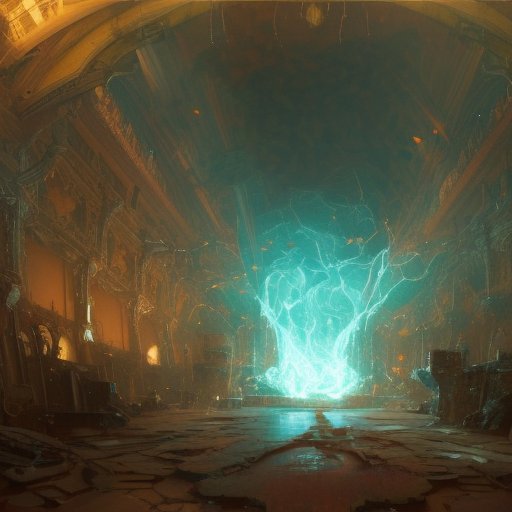
Are we living in a simulation? It’s not just science fiction anymore! From “The Matrix” to “Inception,” popular culture has long speculated about the possibility. But what does science have to say about it? In this article, we’ll explore the evidence and philosophical implications of the Simulation Hypothesis. In addition, we’ll examine the science of simulation and how close we are to creating one. But most importantly, we’ll put our theory to the test: can we detect if we’re living in a simulation? Get ready to dive deep into a world of philosophy, science, and theory!
I. Introduction
Greetings and happy travels, my friends. Today we embark on a journey through the cosmos of our own existence. A question that has plagued humanity since the dawn of consciousness is the following: are we living in a simulation? Yes, the idea that our entire reality is a computer-generated simulation is one that has fascinated and frightened us in equal measure.

In recent years, this concept has become even more prevalent thanks to advancements in technology and the rise of video game culture. But is there any merit to this theory, or is it simply the plot of a sci-fi novel? In this article, we will explore the simulation hypothesis and the intriguing possibility that we are all characters in a much larger virtual world.
We will begin by examining the evidence for and against the simulation theory. Have we found any glitches in the matrix, or is everything running smoothly? We’ll delve into the history of the idea, tracing it back to ancient philosophers who wondered if our reality was simply an illusion.
Next, we’ll discuss the philosophical implications of the simulation theory. If our reality is just a simulation, what does that mean for our understanding of ourselves and the world around us? Are we truly free, or are our actions predetermined by an all-powerful programmer?
But this isn’t just a theoretical debate. The science of simulation is advancing rapidly, and we’ll take a look at just how close we are to creating a virtual world that is indistinguishable from our own. We’ll also explore how we can test for the simulation hypothesis, and what the implications would be if we were able to detect that we are indeed living in a simulated reality.
Finally, we’ll contemplate the long-term consequences of the simulation hypothesis. If we are characters in a computer program, what are the implications for our future as a species? And if we can create our own simulations, what does that mean for the nature of reality itself?
So buckle up and prepare for a journey through the unknown. The truth is out there, my friends, and we might just be living in it.
II. Are we living in a simulation? Examining the evidence
But let’s get to the bottom of this, shall we? Are we living in a simulation, or is this all just a big waste of time? One piece of evidence that supports the simulation hypothesis is the concept of time dilation. In a simulated reality, time could be manipulated in ways that aren’t possible in our physical world.

Another interesting point to consider is the phenomenon of quantum entanglement. It’s as if, at a fundamental level, the universe is just one giant computer network. And if we are living in a simulation, this could be the way that the “programmers” keep track of everything in the virtual world.
Still, there are arguments against the simulation hypothesis. One is the sheer complexity of our world. Could even the most advanced computer systems in existence create something so intricate and multilayered? Additionally, there are limits to the resolution of our reality, which suggests that it may not be a simulation after all.
But what about the glitches in the matrix? There have been several strange incidents that suggest that our reality isn’t as solid as it seems. For example, some people have reported seeing ghostly apparitions or strange distortions in their vision that have no other explanation.
Of course, all of these arguments are just the tip of the iceberg. The debate over the simulation hypothesis has been raging for centuries, and will likely continue for centuries to come. But one thing is for sure – whether we are living in a simulation or not, it’s a fascinating idea to explore.
III. A Brief History of the Simulation Hypothesis
It’s time for a blast to the past, my fellow space cadets. Our exploration of the simulation hypothesis wouldn’t be complete without a look back into the history of this fascinating concept.

Ancient philosophers such as Plato pondered the possibility that our reality was simply an illusion, a mere shadow of a higher truth. This kind of thinking reached a pinnacle with the well-known allegory of the cave, in which prisoners could only see shadows of things and not the things themselves. It’s easy to see how this relates to the simulation hypothesis.
Fast forward to the 20th century, and we see a resurgence of this idea. In the 1950s, the mathematician and computer pioneer John von Neumann discussed the concept of a “universal constructor” – a self-replicating machine that could theoretically create a simulated reality.
In the 1980s, Philip K. Dick, author of classic sci-fi novels such as Do Androids Dream of Electric Sheep? that inspired the movie Blade Runner was perhaps the first to popularize the concept of a simulated reality with his book Ubik.
Then, in 2003, philosopher Nick Bostrom presented his influential argument in which he claimed that one of the following statements must be true: Either all civilizations at our current level of technology become extinct before reaching the “posthuman” stage, or none of them are interested in running simulations of their evolutionary history, or we are probably living in a simulation.
The simulation hypothesis has even seeped into popular culture, with movies like The Matrix and TV shows like Black Mirror exploring the possibilities and consequences of a simulated reality.
Thus, the idea of a simulated reality is not new. It has been discussed and debated by philosophers, mathematicians, and speculative fiction writers alike. The question remains: are we in a simulation or not? Only time and further exploration will tell.
IV. The Philosophical Implications of Living in a Simulation
So we’ve examined the evidence for and against the simulation hypothesis, and we’ve explored the science of creating virtual worlds. But what about the philosophical implications of living in a simulation?

If our entire reality is a computer program, it stands to reason that everything we think we know about ourselves and the world around us is a figment of someone else’s imagination. If our thoughts and actions are predetermined by code, then are we truly free? Or are we mere puppets in a much larger game?
Perhaps even more concerning is the idea that the programmer could change the rules at any time. We could wake up one day to find that gravity no longer exists, or that our loved ones never existed in the first place. If we are living in a simulation, then we are at the mercy of whoever is running the show.
But it’s not just about our own agency. The simulation hypothesis also calls into question the nature of reality itself. If everything we experience is just a construct of a computer program, then what is real? What makes something tangible and meaningful?
On the other hand, some argue that living in a simulation could actually be liberating. If our reality is predetermined, then we are absolved of responsibility for our actions. We are simply fulfilling our programming.
Ultimately, the simulation hypothesis raises more questions than it answers. But regardless of whether or not we are living in a simulation, it serves as a reminder of the fluidity and complexity of our understanding of the world around us. We may never know the truth, but the journey towards discovering it is a valuable one.
V. The Science of Simulation
The science of simulation is rapidly advancing, my friends. We’re getting closer to creating virtual worlds that are indistinguishable from our own. But just how close are we to mastering the art of simulation?

Well, the truth is that we’ve already made remarkable progress. Video game graphics have advanced to the point where it’s hard to determine if what we’re seeing is real or simulated. The same goes for virtual reality technology – we’re getting better and better at creating immersive experiences that feel like the real thing.
But it’s not just entertainment that’s driving the science of simulation. Scientists and researchers are using simulations to model complex systems and processes, from weather patterns to the behavior of subatomic particles. These simulations are helping us better understand the world around us and make predictions about the future.
One of the most promising areas of simulation research is the use of quantum computers. These incredibly powerful machines could allow us to simulate entire universes with ease. It’s a mind-boggling prospect, but one that could become a reality sooner than we think.
Of course, there are still significant challenges to overcome. Creating a simulation that is truly indistinguishable from reality is no easy feat. We still have a long way to go in terms of developing AI and machine learning systems that can create convincing and dynamic virtual worlds.
But even with these challenges, the science of simulation is advancing at an incredible pace. Who knows – we could be living in a simulated reality sooner than we think. The possibilities are endless, my friends. The future is now!
VI. Putting Our Theory to the Test
So, if we’re living in a simulation – how do we find out? This is the ultimate question that has puzzled even the most advanced scientists of our time. Luckily, there are a few clues that we can look out for to determine the reality of our existence.

One of the biggest theories out there is that the universe is, in fact, a hologram. This idea suggests that the universe is a projection from a higher-dimensional reality, with all the information being stored on a thin surface. Scientists are attempting to test this theory by studying the cosmic microwave background radiation, which may hold the key to unlocking the holographic nature of our universe.
Another possibility is that the simulation is built on a grid structure. This is what computer-generated graphics are based on, after all. If our reality is a grid, this could manifest in small ways – such as occasional “pixelated” glitches in our vision or reality behaving in a purely logical, predictable way.
Lastly, researchers have attempted to detect any unnatural patterns or anomalies in our world that could suggest we are living in a simulation. For example, if our world is a simulation, it would need a set of rules to govern it, which could manifest as mathematical patterns or irregularities in our reality.
Despite efforts made by scientists and researchers, we still don’t have a definitive answer for whether or not we’re living in a simulation. However, the fact that we’re able to even entertain the idea is mind-boggling in itself. Perhaps one day we’ll be able to uncover the true nature of our reality – but for now, the simulation hypothesis remains one of the greatest mysteries of our time.
VII. If We Are Living in a Simulation, What Can We Do About It?
If we are trapped in a simulation, what can we do about it? Well, the short answer is: not much. If the world we inhabit is just lines of code, then any attempt to break out of the simulation would be futile. We’ll be stuck here forever.

But that’s not to say that we’re completely powerless. If we know that we’re living in a simulation, it changes our understanding of what’s possible. For example, we might be able to hack the simulation or find some way to subvert the program.
Another possibility is that we could try to communicate with our creators. If they exist, then they might be able to give us some guidance on how to manipulate the simulation. Perhaps they could even help us break free altogether.
Of course, there’s a risk in trying to interact with our creators. If they are malicious or indifferent, they might see us as nothing more than ants to be squished. But if we truly have no other options, then it might be worth the risk.
Finally, it’s worth considering what we would do if we did manage to escape the simulation. After all, if our reality is just lines of code, what does that say about the nature of the universe? Would we want to live in a world where everything is predetermined? Or would we prefer the freedom that comes with a more chaotic existence?
These are tough questions to consider, and there are no easy answers. But if we’re living in a simulation, then it’s important to think about what we can (and can’t) do about it. Whether we’re stuck here forever or have the power to break free, the implications of our virtual reality are profound.
VIII. The Future of Simulation Theory
What comes next for simulation theory? Looking towards the future, it’s clear that there is much more to discover. As technology advances, our ability to create complex simulations will continue to improve. Soon, we may find ourselves living in a world that is entirely simulated, where reality and virtual reality are indistinguishable.

One potential path for the future of simulation theory is the possibility of creating simulations within simulations. If we are already living in a simulation, could we create our own simulations within this simulated reality? It’s a mind-bending concept, but one that has been explored in numerous science fiction stories over the years.
Another exciting development could be the use of simulations to predict the future. If we can create virtual worlds that accurately mimic our own, then we could use these simulations to predict the outcome of different scenarios. This could have implications for everything from climate change to geopolitical events, as we could use simulations to model complex systems and better understand their behaviors.
As we continue to grapple with the simulation hypothesis, one thing is clear – this is a concept that will only become more relevant in the years to come. As technology advances and we learn more about the nature of reality, the lines between what is real and what is simulated will continue to blur.
But whether we are living in a simulation or not, the important thing is to continue exploring the world around us with an open mind. Who knows what we may discover in the years to come – whether it’s a glitch in the matrix or a new understanding of the universe.






